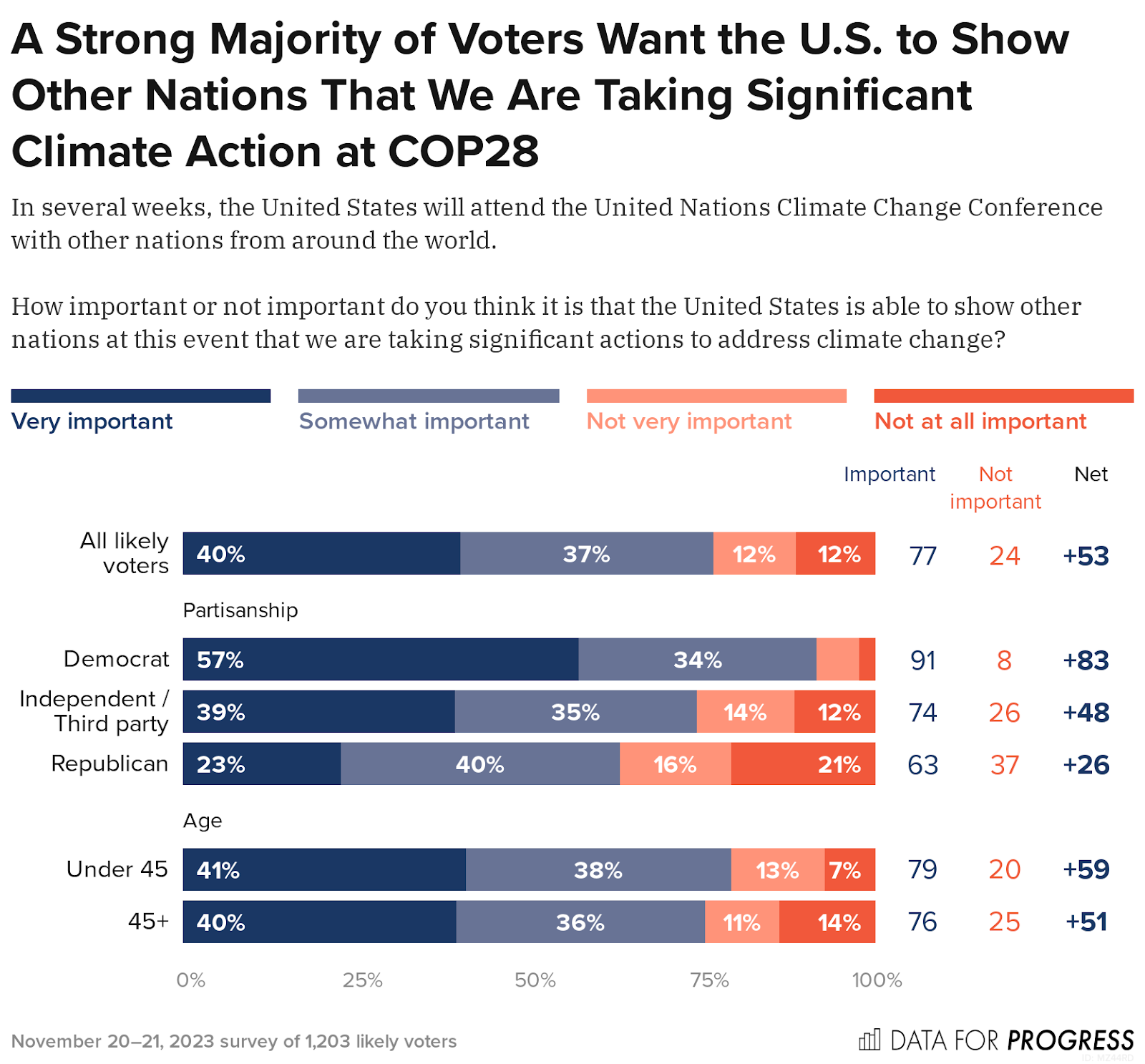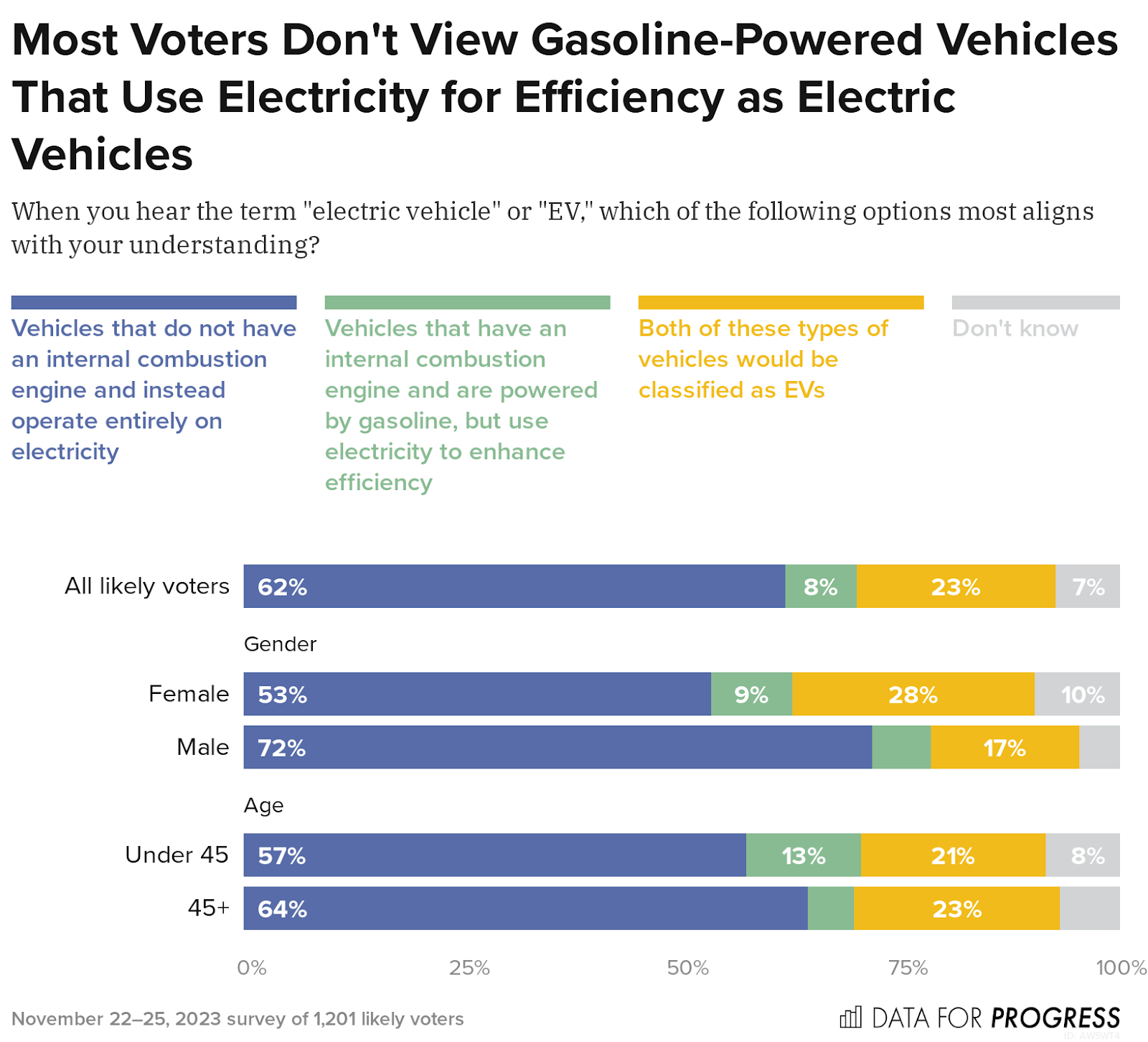|
bidenomics: turn it to eleven
It’s the holiday season, and if there’s nothing we Americans love more than giving our thanks and spiking our eggnog, it’s spending way too much money on gifts for our friends, family, and — we can admit it — ourselves. While the economy is about to stick a landing better than Simone Biles, it's been forty years since inflation was this high. It’s no surprise that voters are down on the economy this year, but our research finds it’s not too late for Biden to turn the tide.
As Data for Progress’ Executive Director Danielle Deiseroth wrote in The Hill:
Some pundits are suggesting that Biden needs to pivot right to win over swing voters. This is misguided. Our polling suggests that voters overwhelmingly support progressive economic ideas, especially those that will rein in corporations and bolster long-standing government programs such as Social Security by making the ultra-wealthy pay their fair share. It’s not that voters are hearing Democrats’ ambitious economic ideas and rejecting them — it’s that they aren’t hearing them enough.
Our polling finds that while 90 percent of voters support protecting Social Security funding, only 20 percent have heard Biden talk “a lot” about the issue. And this lack of clarity has consequences — Independent voters are nearly split on whether they think Biden or Trump is more likely to protect Social Security, despite GOP proposals to cut funding for the program.
This pattern extends across a variety of Biden’s economic policies — less than one-in-three voters have heard “a lot” from Biden on preventing junk fees and lowering prescription drug costs, despite these positions being overwhelmingly popular among voters.
There are some cases where the problem is simply that something is a bad idea. Like using your campaign funds to purchase Hermès handbags. Or Elon Musk running Twitter. Bidenomics is not one of them — voters love the idea, they just need to hear about it more.
Read the full op-ed in The Hill here.
Here are some other highlights from DFP this week:
will COP be a flop?
COP28 — the United Nations’ annual conference on climate change — kicked off this week in Dubai. You know what they say, the 28th time’s a charm, which means this will be the year we all agree to phase out fossil fuels and commit to helping developing countries face the threat of climate change… right?
In America, we’re used to being the Regina George of global affairs – everyone hates us, but you’re going to follow our lead when we wear army pants and flip flops. Data for Progress finds that voters want the U.S. to commit to ambitious climate action at COP28. A strong majority of voters (77%) view it as “very important” or “somewhat important” for the U.S. to demonstrate that it is taking strong action on climate change.

We also find that a majority of voters (65%) believe the U.S. should lead the world on climate, even if other countries don’t follow suit. And this isn’t a new phenomenon. Support for U.S. leadership has persisted since 2021, when Data for Progress first found 68% support for U.S. action at COP26. America, it’s time to step up. We owe it to the world to make sure the planet doesn’t get as hot as the hell that Henry Kissinger is burning in.
Read the latest polling here.
you couldn’t power an EV with all this gaslighting
Sorry, Elon. You aren’t the only gaslighter in the EV market anymore. Earlier this fall, Toyota launched its “Electrified Diversified” marketing campaign, which uses “EV” to describe cars that don’t have an internal combustion engine and cars that do have one, but also use electricity to enhance efficiency (like the Prius).
We may not know how to change a tire, but it seems to us like you shouldn’t use “EV” to describe cars that require gasoline for power.
Data for Progress surveyed likely voters to understand how they define the term EVs. Despite Toyota’s advertisements, most voters don’t consider gasoline-powered vehicles as an electric vehicle. A majority of voters (62%) view vehicles without an internal combustion engine that operate entirely on electricity as EVs, compared with only 8% who view vehicles that are powered by gasoline but use electricity to enhance efficiency as EVs. Twenty-three percent of voters consider both types of vehicles to be EVs.

Toyota’s greenwashing is so strong, you actually could use it to wash their gas-powered cars. With all this deceptive advertising and consumer manipulation, we’ll just be taking the bus instead.
Read the full polling here.
|